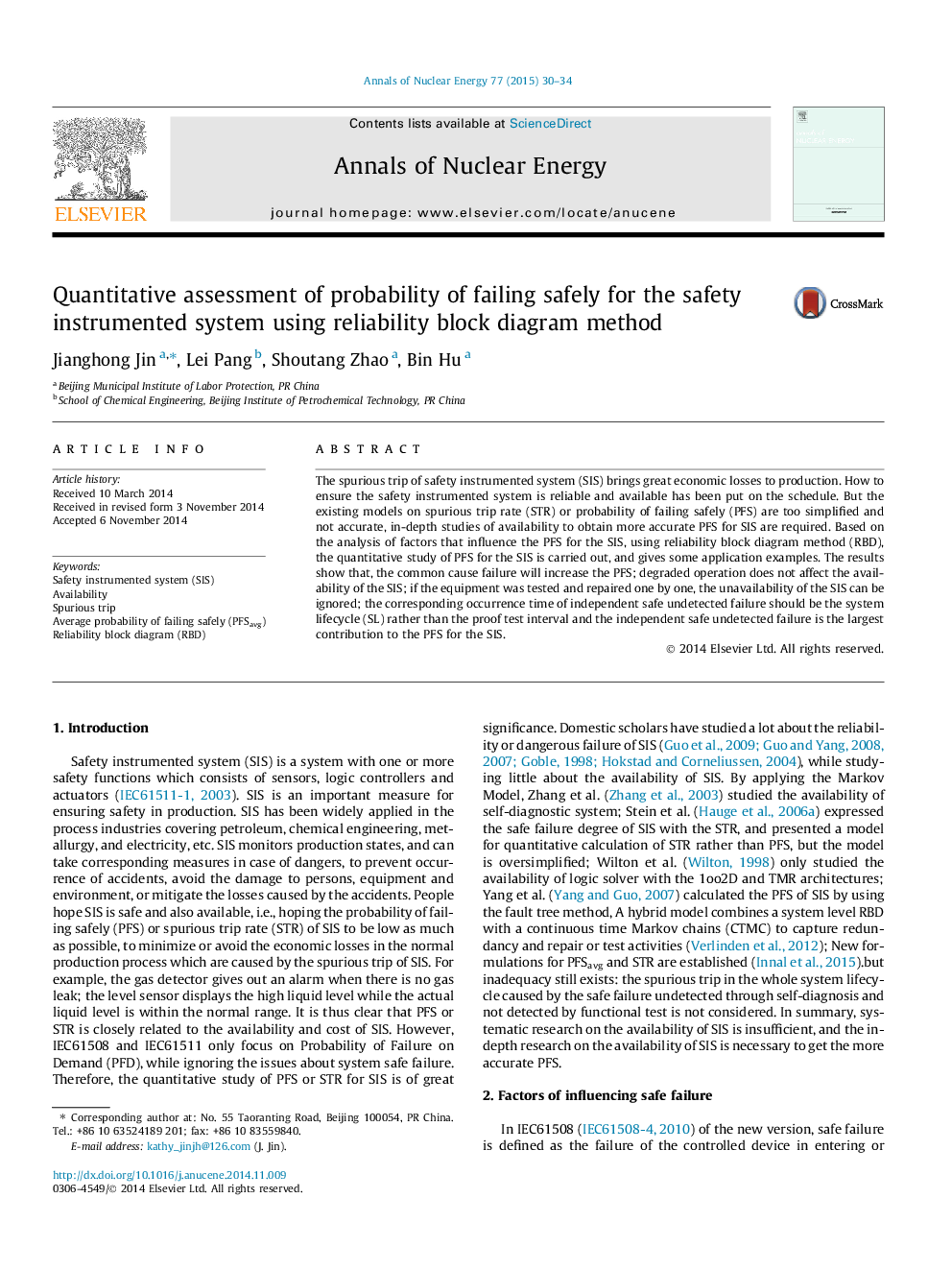| Article ID | Journal | Published Year | Pages | File Type |
|---|---|---|---|---|
| 8068865 | Annals of Nuclear Energy | 2015 | 5 Pages |
Abstract
The spurious trip of safety instrumented system (SIS) brings great economic losses to production. How to ensure the safety instrumented system is reliable and available has been put on the schedule. But the existing models on spurious trip rate (STR) or probability of failing safely (PFS) are too simplified and not accurate, in-depth studies of availability to obtain more accurate PFS for SIS are required. Based on the analysis of factors that influence the PFS for the SIS, using reliability block diagram method (RBD), the quantitative study of PFS for the SIS is carried out, and gives some application examples. The results show that, the common cause failure will increase the PFS; degraded operation does not affect the availability of the SIS; if the equipment was tested and repaired one by one, the unavailability of the SIS can be ignored; the corresponding occurrence time of independent safe undetected failure should be the system lifecycle (SL) rather than the proof test interval and the independent safe undetected failure is the largest contribution to the PFS for the SIS.
Related Topics
Physical Sciences and Engineering
Energy
Energy Engineering and Power Technology
Authors
Jianghong Jin, Lei Pang, Shoutang Zhao, Bin Hu,
